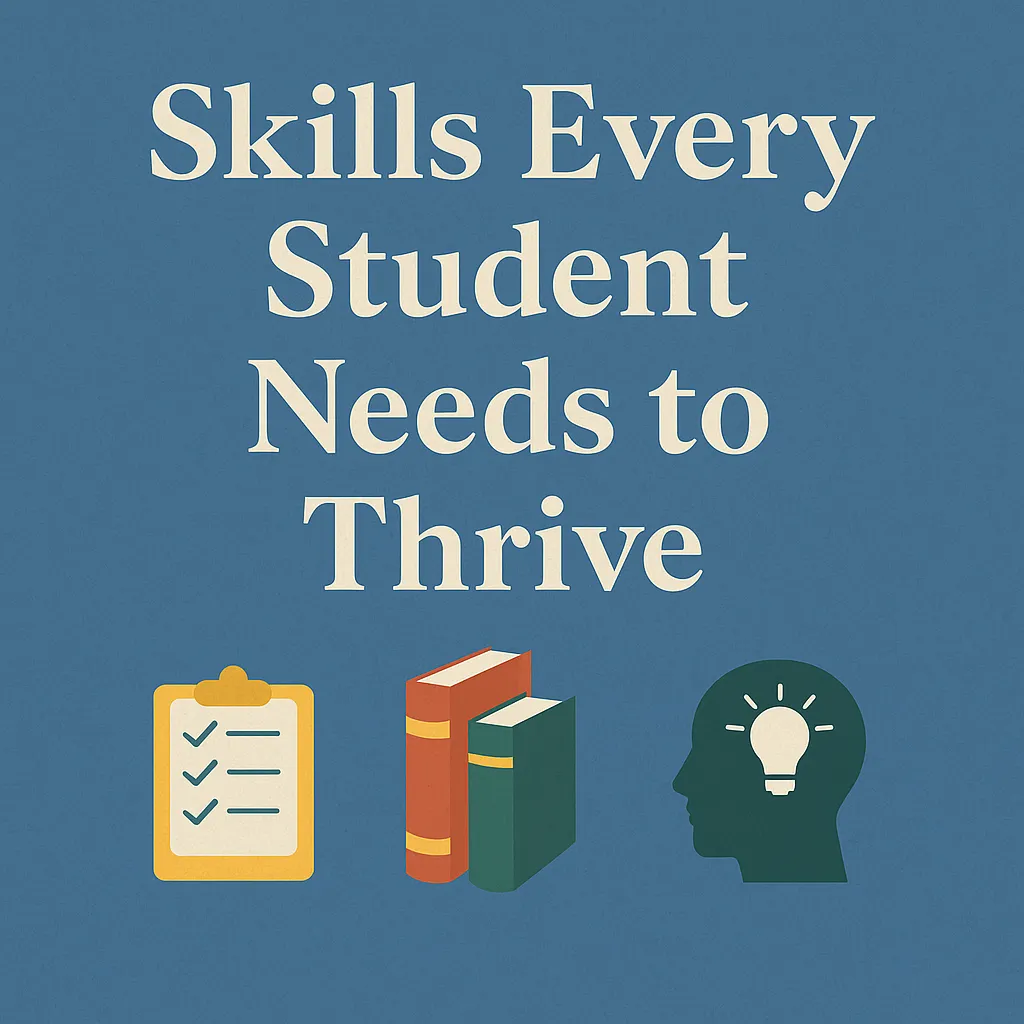Contact Us
The Parent’s Corner:
Insights, Advice, and Inspiration

What Skills Beyond Academics Does My Child Need to Succeed?

When she first started virtual sessions with me, a quiet 10-year-old girl logged in, speaking in barely a whisper and avoiding eye contact with the camera. She was working at a 1st/2nd grade level — and didn’t believe in herself enough to speak up when she was unsure.
Over the next six months, her transformation was nothing short of inspiring. Her thirst for knowledge and drive to get stronger started to shine through. She began taking notes she could rely on, built up her confidence to use her voice, and learned how to approach problems step by step. She even started tackling simpler skills on her own — watching videos and reviewing notes between our sessions.
Today, she’s confidently working at a mid-4th-grade level and has no problem speaking up for herself when she needs help.
And that’s why it’s so important to teach kids the skills that go beyond just academics — the ones that help them thrive in school and in life.
"So what exactly are these skills that help kids shine beyond just grades? Let’s break them down, one at a time."
Why These Skills Matter
Success in school isn’t just about knowing the material. It’s also about developing the proper habits and mindset to handle challenges, manage time effectively, and stay motivated — even when it’s difficult.
Here are some of the most essential non-academic skills kids need to thrive — and how I’ve seen students put them into action:
"Let’s start with a big one — test-taking. For so many kids, tests feel like the ultimate obstacle, but with the right mindset and tools, they can tackle them with confidence."
📘 Test-Taking Strategies
One of my 5th graders had struggled for years with reading tests. Yes, we worked on his reading skills, but just as necessary was his confidence.
We discussed goals and expectations, and I helped him see testing like a sport: you practice during the week so game day feels easy.
He went from scoring at a Level 1/2 in reading to a Level 4, above grade level.
Test-taking is about mindset, pacing, and knowing you’re ready.
"Of course, even the smartest students can feel overwhelmed if they don’t know how to manage their time. That’s where this next skill comes in."
⏰ Time Management
I started working with a 7th grader who’d been frustrated for years because no one understood his need for breaks and extra time. Even after switching to homeschool, he and his mom felt lost.
We created a simple daily list and worked on routines so he could navigate his day independently. Now, he manages his schedule, checks in with teachers independently, and his next step is to plan his list the night before so he can start his day strong.
Learning how to plan your time is a game-changer.
"But what about when things go wrong? That’s where resilience and problem-solving really set students apart."
💪 Resilience & Problem-Solving
A 4th grader came to me the summer before 5th grade, struggling in just about every area. We built a solid foundation, but when her family had to switch her to a school that wasn’t supportive, she continued to fight.
We adjusted her plan, and she practiced math facts every evening on her way to and from sports. By the end of 5th grade, she scored above grade level in math.
Resilience is about showing up, even when it’s hard.
"So how can you, as a parent, help your child practice these skills at home? You don’t have to wait for school to teach them — here are a few ideas to get you started."
How Parents Can Help
You don’t have to wait for school to teach these skills — here are a few easy ways you can help at home:
✅ Let your child write their to-do list and check it off.
✅ Help them email their teacher themselves when they have a question.
✅ Set a timer and practice a quiet “test-taking” session at home.
✅ Talk through mistakes instead of fixing them right away — ask, “What could you do differently next time?”
✅ Encourage short, quiet brain breaks when they feel overwhelmed.
These little steps build independence and confidence over time.

Final Thoughts
Good grades are excellent, but knowing how to manage your time, stay calm under pressure, and persevere when things get tough is even more valuable. These are the skills that truly set students up for success.
If you’re not sure where to start, pick one of these skills and focus on it this week. And if you’d like some extra support, I’d love to help.
💬 Send me a message anytime — together we can help your child build the habits and confidence they need to succeed.

